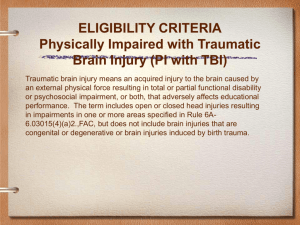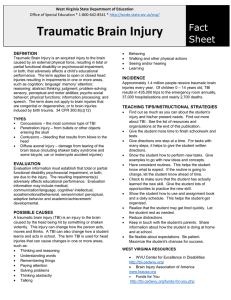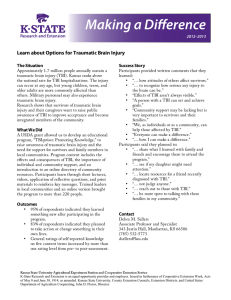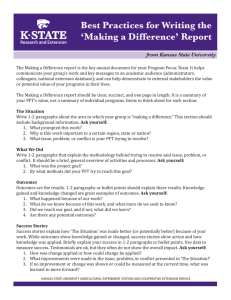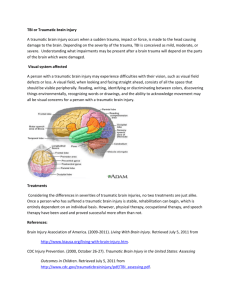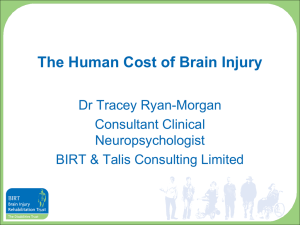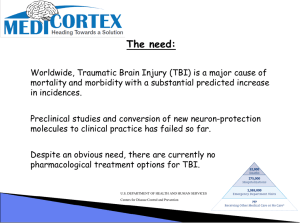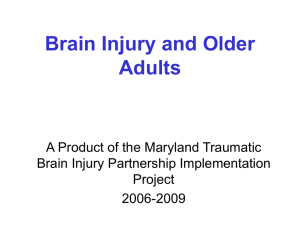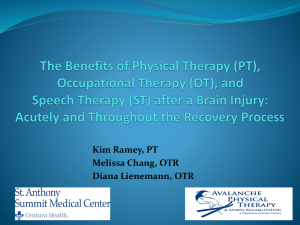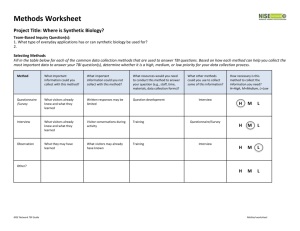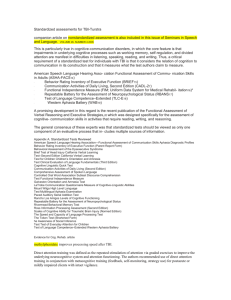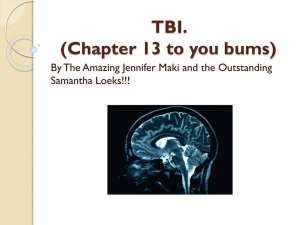Traumatic Brain Injury and Assistive Technology 3.19.09
advertisement
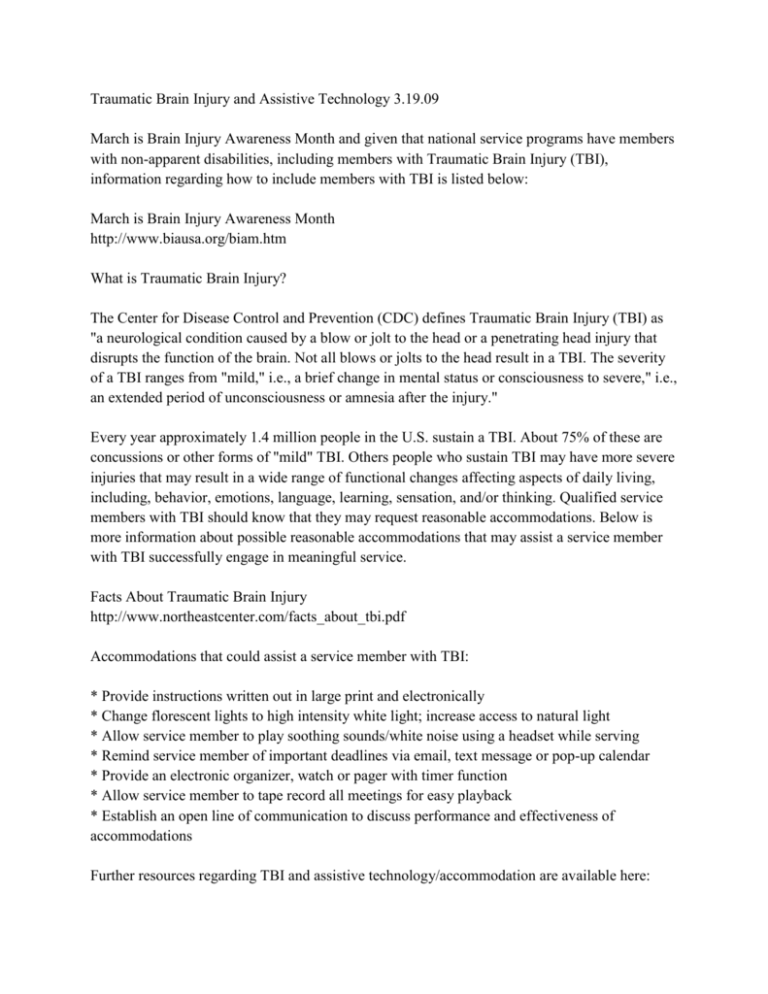
Traumatic Brain Injury and Assistive Technology 3.19.09 March is Brain Injury Awareness Month and given that national service programs have members with non-apparent disabilities, including members with Traumatic Brain Injury (TBI), information regarding how to include members with TBI is listed below: March is Brain Injury Awareness Month http://www.biausa.org/biam.htm What is Traumatic Brain Injury? The Center for Disease Control and Prevention (CDC) defines Traumatic Brain Injury (TBI) as "a neurological condition caused by a blow or jolt to the head or a penetrating head injury that disrupts the function of the brain. Not all blows or jolts to the head result in a TBI. The severity of a TBI ranges from "mild," i.e., a brief change in mental status or consciousness to severe," i.e., an extended period of unconsciousness or amnesia after the injury." Every year approximately 1.4 million people in the U.S. sustain a TBI. About 75% of these are concussions or other forms of "mild" TBI. Others people who sustain TBI may have more severe injuries that may result in a wide range of functional changes affecting aspects of daily living, including, behavior, emotions, language, learning, sensation, and/or thinking. Qualified service members with TBI should know that they may request reasonable accommodations. Below is more information about possible reasonable accommodations that may assist a service member with TBI successfully engage in meaningful service. Facts About Traumatic Brain Injury http://www.northeastcenter.com/facts_about_tbi.pdf Accommodations that could assist a service member with TBI: * Provide instructions written out in large print and electronically * Change florescent lights to high intensity white light; increase access to natural light * Allow service member to play soothing sounds/white noise using a headset while serving * Remind service member of important deadlines via email, text message or pop-up calendar * Provide an electronic organizer, watch or pager with timer function * Allow service member to tape record all meetings for easy playback * Establish an open line of communication to discuss performance and effectiveness of accommodations Further resources regarding TBI and assistive technology/accommodation are available here: Brain Injury Association of America (BIAA) http://www.biausa.org/index.html JAN: Accommodation and Compliance Series: Brain Injury http://www.jan.wvu.edu/media/BrainInjury.html#Res The Family Center on Technology and Disability http://www.fctd.info/show/home FCTD Glossary of Assistive Technology http://www.fctd.info/resources/fig/Sec1.htm#g We always look forward to serving you! Please feel free to contact us with any disability inclusion questions and requests for information at NSIP@umb.edu or 888-491-0326 (V/TTY). Visit http://www.serviceandinclusion.org/index.php?page=request for a list of trainings offered by NSIP. Yours in Service, Sarah Kaplan Training Associate National Service Inclusion Project www.serviceandinclusion.org The National Service Inclusion Project is a cooperative agreement (08TAHMA001) between the Corporation for National and Community Service and the Institute for Community Inclusion at UMass Boston in collaboration with the Association of University Centers on Disabilities, Association on Higher Education and Disability, National Council on Independent Living and National Down Syndrome Congress. Information contained in this email is for informational purposes only and does not imply endorsement from the National Service Inclusion Project or the Corporation for National and Community Service.
